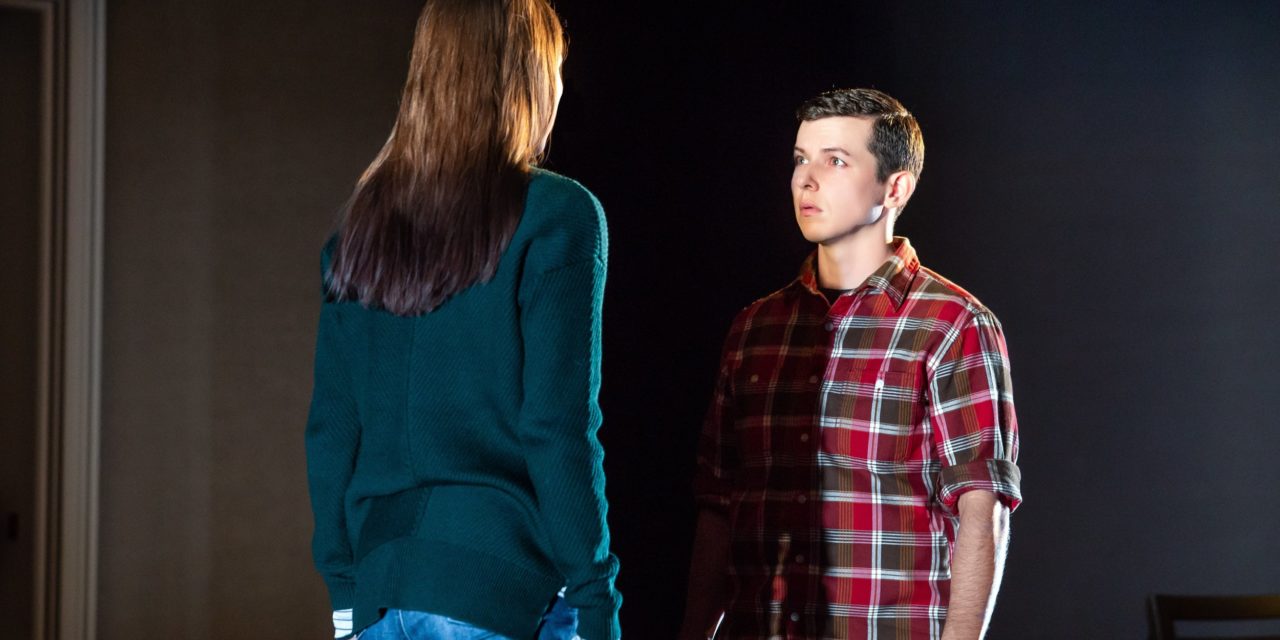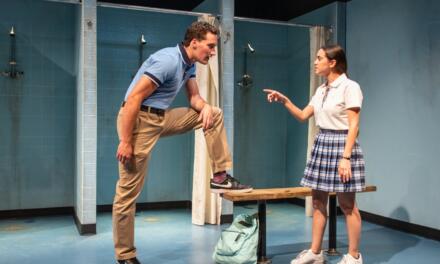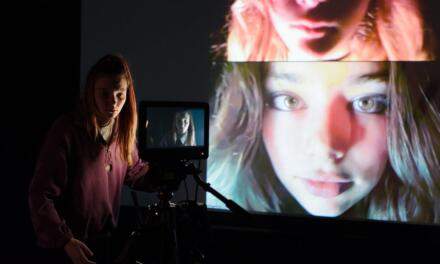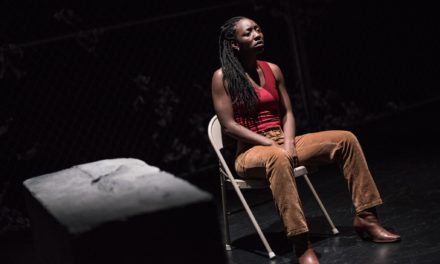Plot Points in Our Sexual Development — stashed away in the secluded interior of the Claire Tow Theater, the smallest of Lincoln Center’s venues, modest enough in size that you can hear yourself laugh and the type of space that offers up shows as if they were well-curated exhibits — is the story of one, hour-long conversation between two lovers. Separated by a gulf of sexual experience larger than any theater could hold, they sit beside one another and in rare, priceless simplicity, talk.
Come not for theatrics, but for humanity.
In concept it’s simple enough: Theo (Jax Jackson), genderqueer and transmasculine, and Cecily (Marianne Rendon), a cis woman, love one another. But to love each other fully they must understand each other’s bodies, each other’s desires, and sexual interests. To wade in a river so deep means to dive far into the trauma and testimony that make up our lives — take the plunge, suggests playwright Miranda Rose Hall, lest you drown.
As the two sit before each other and trade stories of their sexual development — some innocent, others funny, a few traumatic; things like oral sex in church or the first time you masturbated or felt the burning sear of homophobia — it’s easy to become lost in their stories, to melt into the soft-lighting of the stage as if you yourself could join them somewhere in the recesses of identity.
Here, where we examine the scary parts of our sexual lives, where we may feel at times ugly or repulsive, powerful or strong, those plot points — glimpses of light where our true selves shown through the cracks — are ever more visible.
The cultural and political theorist Stuart Hall, in describing a cultural character, wrote that identity was not unearthed, but continually produced, that its formation was not a process of archeological discovery, but a continued production made in the re-telling of our pasts.
In many ways, Plot Points is a queer meditation of the same thought. Queer spaces, Miranda Rose Hall suggests, are not just important for probing contemporary questions of gender fluidity and sexual expression; they are uniquely suited to plot the points of sexual development, to explore the dynamic, malleable nature of identity. Queer sex not as negotiation or imitation, but as creation and innovation.
Director Margot Bordelon provides that explorative space, her honest, bare-bones direction a guiding hand for the thrilling performances given by Jackson and Rendon. As actors, they’ve cultivated on-stage chemistry that travels beyond a believable romantic connection; they’ve succeeded in portraying a relationship during a prolonged moment of disconnection, of crisis while either partner dives deep within themselves to salvage what they’ve made together. With no eccentric set — two chairs, really (though tastefully designed by Andrew Boyce) — or mammoth theater to hide behind, props or music to occupy their nerves, both actors stand essentially naked, and their poignant, poised performances can teach us all a thing or two about vulnerability.
Ultimately, it’s that vulnerability, that humanity written in Rose Hall’s script, that forces Plot Points to confront its own contradiction in conception. Theo and Cecily’s excavation reveals only the faults in their method; understanding our sexual selves is not a game of connecting the dots. The distance between two points is a line, and identity and sexual development are not linear. That “Plot Points” succeeds in such a revelation, whatever its original mission, is worthy of praise.
“God, I feel like something in me is breaking open, like I could crack into a million pieces,” says Cecily near Plot Points’ conclusion, asking of Theo: “Could we maybe stop talking for a minute? And just look at each other?”
This post was written by the author in their personal capacity.The opinions expressed in this article are the author’s own and do not reflect the view of The Theatre Times, their staff or collaborators.
This post was written by Michael Appler.
The views expressed here belong to the author and do not necessarily reflect our views and opinions.


















